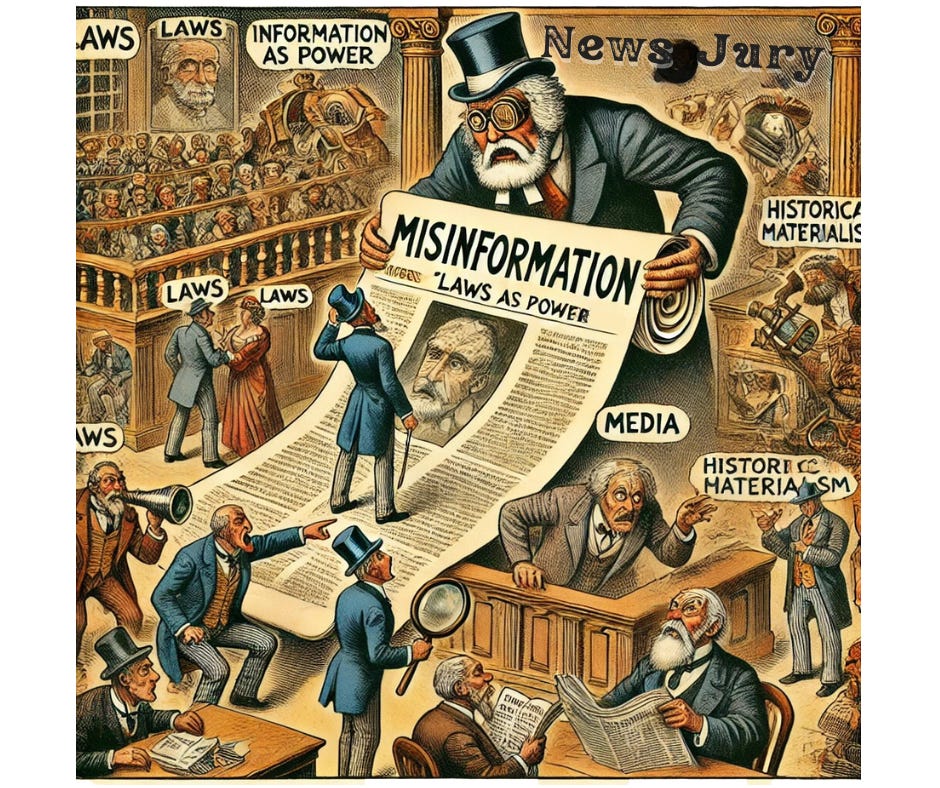
The power of misinformation is indeed as potent as the power of information, highlighting a fundamental reality: information itself is power. As George Orwell describes in his seminal 1984, this power can be orchestrated, manipulated, and weaponized to serve specific agendas. However, when we refer to a Marxian material discourse of history, we engage with the conditions and contexts that shape economic, social, and political realities. Wealth and industries, driven by vested interests, will lie to protect and perpetuate their dominance. In turn, corporate-funded elections—especially those unrestrained by funding limits—secure policies and representatives that serve private rather than public interests.
Colonialism and privatization regimes have historically depended on violent mechanisms of accumulation: genocide, slavery, theft, fraud, and dispossession. These mechanisms, though often couched in legal frameworks, reveal an unsettling reality—that those who influence laws and judicial bodies can position themselves above the very rules meant to ensure justice. Neoliberalism, with its promise of market-based freedoms, exploits this dynamic by molding information to align with the interests of capital. The rule of law, under such a paradigm, becomes a contradictory rule of special interests.
This underscores why historical materialism remains crucial: it allows us to decode misinformation. Understanding misinformation involves more than simply recognizing falsehoods; it requires situating these falsehoods within the broader structures of power, class, and economic control. By analyzing the historical and material conditions under which misinformation is produced, disseminated, and consumed, we gain insight into the political economy itself.
Reading misinformation, therefore, is not a passive act but a critical exercise. It exposes the mechanisms through which consent is manufactured, inequality is perpetuated, and systemic injustices are maintained. By cultivating this critical literacy, we equip ourselves to challenge not only the narratives but also the structures that uphold exploitative systems.
